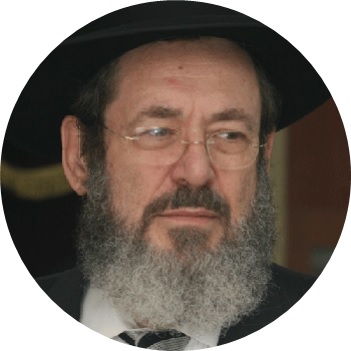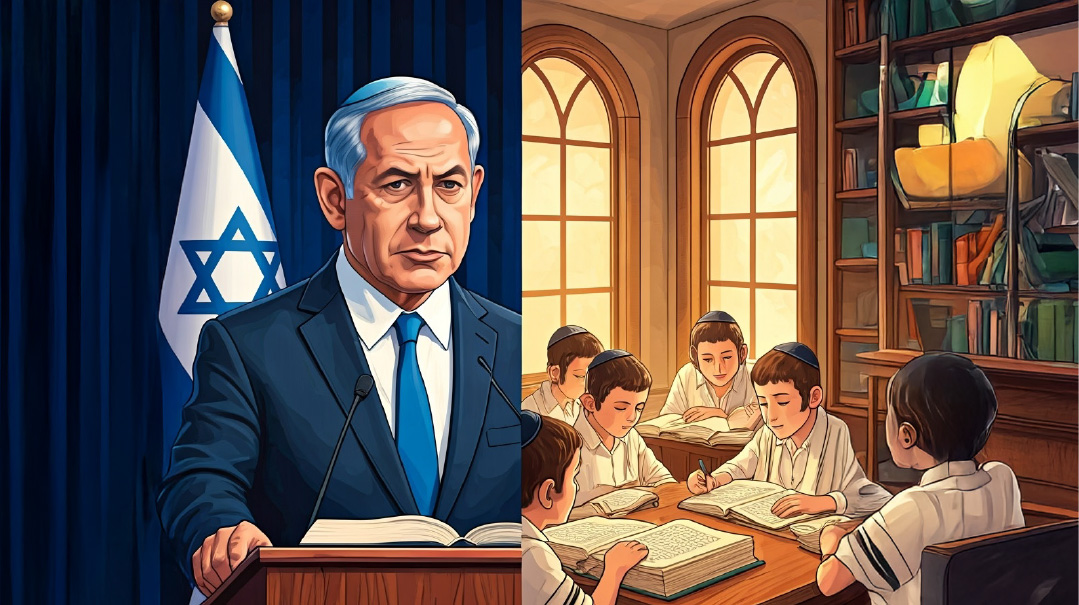Beware of Declarations


Often principals parents or teachers will draw a line in the sand making it clear that they will never do something or always act a certain way. Passionate people often speak in absolutes.
Experience has humbled me teaching me to be more careful when analyzing situations and offering my assessment learning to avoid viewing things as black and white true or false. Especially in dealing with people we have to remember “Al tadin es chavercha ad shetagia limkomo — don’t judge your fellow until you reach his place” (Pirkei Avos 2:5). Who are we to judge?
I recently returned from a wonderful Pesach program held at the Sheraton in San Diego. One of my grandsons was part of the administration and I had the opportunity to present several sessions. I enjoyed myself and when I returned home one of my sons was listening as I shared my delight.
When I finished talking he reminded me that many years ago I had categorically declared that I would never ever participate in a Pesach program in a hotel. He also reminded me that over the years whenever I heard about people planning to join a program I reiterated that pledge numerous times.
After the initial shock of realizing that I had not lived up to my own standards I proceeded to defend my actions by telling him that times have changed and the frum world has changed as well. In the program that we attended the heimishkeit of the crowd was refreshing; we felt comfortable with the superb hashgachah; the enlightening shiurim daf yomi and the tefillos were inspiring; the opportunity to have our Sedorim in a private room with family made us feel at home; and the awe-inspiring singing and dancing at the ne’ilas hachag all led to a derhoibene (uplifted) Pesach.
(This point of this article is not to debate Pesach hotels and whether they’re a suitable choice for a Torah family. Every family and individual should make that decision together with their moreh derech. Rather I’d like to focus on what that exchange with my son taught me about myself.)
Thirty-five years ago I would never have predicted that I would be able to participate in such a program. When Chazal cautioned “Chachomim hizaharu b’divreichem — wise people be careful with your words” (Pirkei Avos 1:11) they referred to all of us. We must be cautious with our words because they can easily come back to bite us. When imparting our weltanschauung our derech hachayim and our personal hanhagos to our children we must try to take all eventualities into account before we speak.
Torah and its hashkafos are nitzchiyus eternal and are not subject to change. But circumstances societies and times do. When we are mechanech our children we must try whenever possible to give the underlying reasons for our actions and words. When we are transparent with our children as to why we act a certain way when changes inevitably occur they will understand why.
The guilt trip I felt from my son bringing up my past declaration about Pesach hotels was in place because I should have been more careful with my words back then. Nothing is etched in stone. Circumstances today may enable us to go on a vacation that we could never have foreseen taking earlier in our lives due to financial constraints. We do not have to feel guilty about such a trip — unless we derided others for doing so or denounced vacations as a waste of time and money. If children ask why you don’t go on vacations you can respond “When we find a suitable place and have the money we’ll go.” This way when you do eventually go they’ll understand that you are not hypocritical.
What I should have said many years ago about Pesach hotels was that I would not go because I did not see any of them being suitable to our way of life and offered examples. This way my son’s issue about my having said one thing and having done another would not have arisen.
But there are other benefits to explaining our approach to life and not merely issuing instructions.
I once saw a father instruct a five-year-old holding a candy to make a brachah and even starting him off before walking away. Curious I asked the boy “What is a brachah? Why do we make brachos?” The boy had no clue.
One day this boy will know what a brachah is and why we say them. Yet brachos will remain a rote activity. How different it would be if this father would say “Thank Hashem for the candy with a brachah ” as frequently as he says “Make a brachah.” The “why” would be engrained into this boy’s essence for the rest of his life.
Rather than instruct a child to go daven why not say “When you daven Minchah ask Hashem to get you into the bunk you want ” or “Will you remember to thank Hashem for giving Mommy a refuah sheleimah?”
Similarly I once witnessed a mother threaten her teenage son that if he had another shot of whiskey she would ask him to leave the house. When he did the shot she scolded him but did not follow through on her threat.
Had this mother taken the time to patiently and kindly explain the negative consequences of alcohol and made certain that he realized that she had his best interests in mind that interaction could have ended very differently.
The words we use will make a real difference in our children’s lives. Make sure to choose those words carefully so that your children understand your approach to life and hopefully to choose to follow in your path. (Originally featured in Mishpacha Issue 666. Rabbi Shneur Aisenstark is the dean of Beth Jacob Seminary of Montreal)
Oops! We could not locate your form.












